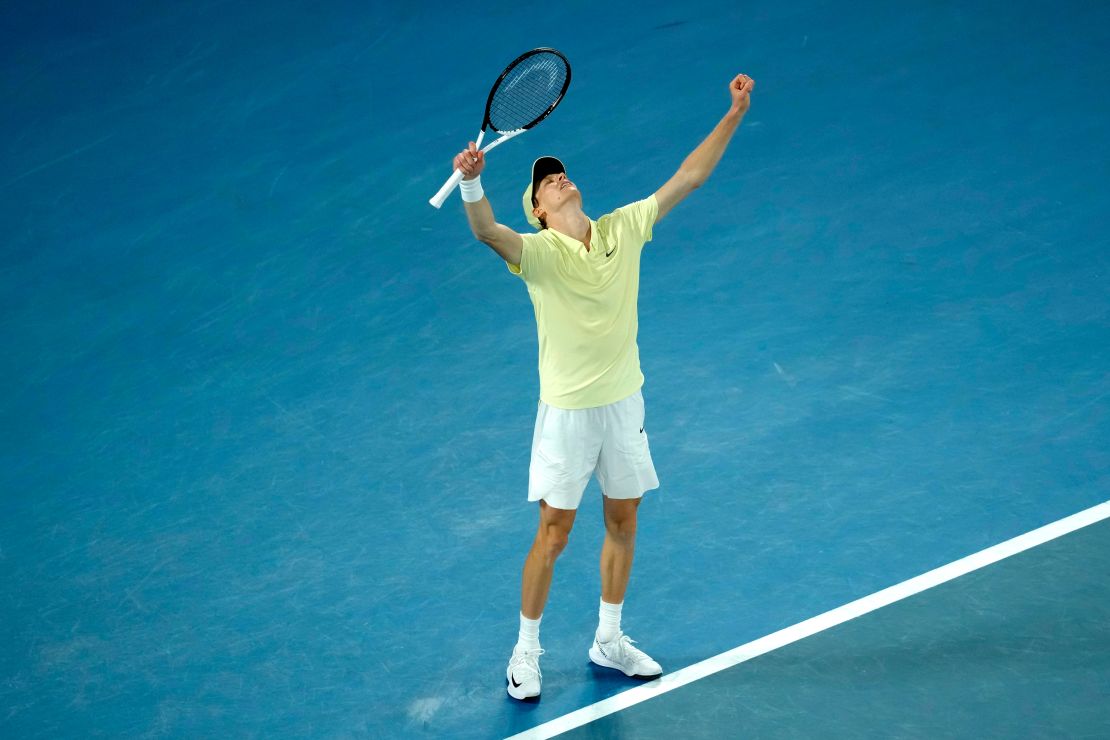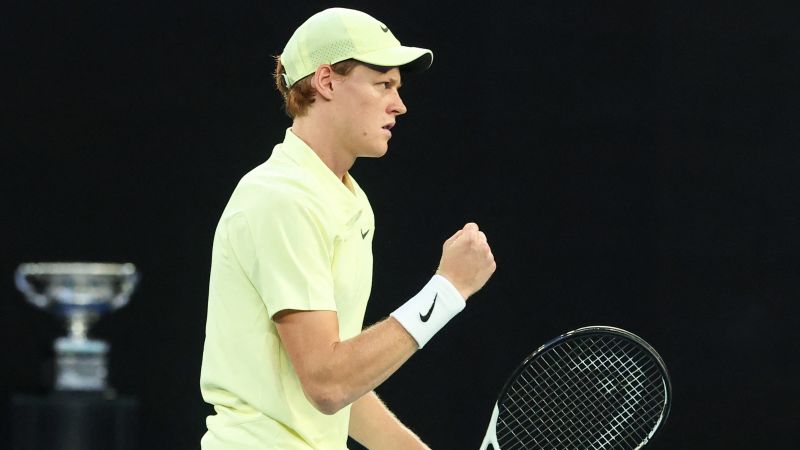World No. 1 Jannik Sinner defended his Australian Open title on Sunday, comfortably defeating Alexander Zverev 6-3, 7-6(4), 6-3 in the men’s final to secure his third career grand slam win.
Just over a year ago, Sinner hadn’t won a grand slam title; he was still a promising youngster, unproven but earmarked for great things. Now, the 23-year-old Italian has three grand slam titles – two at the Australian Open and one at the US Open – and has been the dominant player on the men’s tour since he gained the mantle of world No. 1 last June.
Against Zverev, he was also dominant, becoming just the fourth male player in the last 35 years to win a grand slam final without even conceding a single break point, despite never really playing his best tennis.
But still, a cloud hangs over Sinner’s win since it comes against the backdrop of ongoing controversy off the court.
He avoided suspension last year after testing positive for Clostebol, a banned anabolic steroid, in March. The International Tennis Integrity Agency announced in August that he wasn’t at fault for the incident, but the World Anti-Doping Agency has lodged an appeal with the Court of Arbitration for Sport. The hearing is set to begin on April 16.
Even with that case lingering over him, Sinner has embarked on a remarkable 21-match unbeaten run. That streak never seemed threatened by world No. 2 Zverev, who was playing in his third grand slam final and remains in search of that elusive first major.
Though Zverev’s serve was as strong as ever, the rest of the game, particularly his forehand, was shakier, allowing Sinner to control the first set. The German hit 12 unforced errors in the set as too many of his forehands skewed off his racket at the wrong angle and out of the court.
Meanwhile, Sinner simply returned every ball, winning the overwhelming majority of rallies that lasted longer than nine shots.
His service game remained impenetrable; he dropped just six points on it in the whole set, leaving Zverev constantly on the back foot. Throughout, Zverev fought to stay in touch, hauling himself out of danger on five break points before eventually losing the sixth as he smashed a volley into the net.
By contrast, in the next game, Sinner’s play at the net was precise and exacting as he manoeuvred Zverev all around the court before tapping a backhand volley winner over to bring up set point, which he then sealed with an ace.

Zverev appeared rattled at the start of the second set as even his serve worsened. But, somehow, he held every service game to keep his nose ahead, and he clawed his way back as the set continued, finding more power in his groundstrokes.
He even had a glimmer of hope when Sinner was 0-30 down and serving to stay in the set at 4-5, but the Italian quickly allayed any danger by finding two brilliant first serves and winning the next four points.
With Zverev on the cusp of a set point two games later, the match came alive at last with a scintilating 21-ball rally that had both players scampering all over the court, though Sinner once again shut down any chance for Zverev with a perfectly weighted passing shot and held on to force a tie-break.
Once Sinner had won that tie-break and taken a two-set lead, Zverev’s energy seemed to dissipate and he was unable to produce much of a challenge in the third. Sinner coasted to another grand slam title from there, becoming the youngest man for 32 years to win back-to-back tournaments in Melbourne.
This story has been updated with additional developments.






